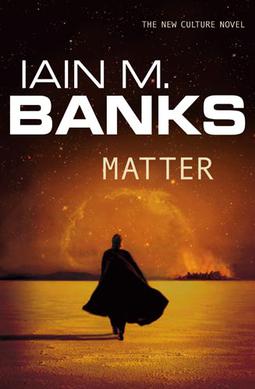
I have read so many Iain M. Banks so quickly this year, due to the series read my online book club has undertaken. I'm generally a couple of months behind, but am trucking away. All the way along, it feels like I've been enjoying these books well enough, but there's still something missing. Something where Banks and where he puts his attention does not exactly align with what I want out of my science fiction.
It's a vague dissatisfaction - I like these books, and while I'm reading them, they don't make me angry or disappoint me. It's just that when I close the pages, there's still a sense of something not quite being right. I am having a hell of a time figuring out what it was. In the last review, I talked about not really connecting to the characters, and I think that's true.
This time, though, I'm feeling like the pacing is odd. Not wrong, again. Nothing here is overtly wrong. I'm just somehow out of tune with these books. I like meandering books, for the most part, as long as I'm accompanying characters I really enjoy as they wander from place to place. But when these books wander, it feels haphazard, or maybe it's because I do so rarely get invested in his characters.
In this book, the ideas, which are the strongest part of the Culture novels, are all about what matters. or to be more specific, how what matters is often a function of scale. When you can interfere, when should you? Where do you draw the line? On what scale are your interferences? What room is there for personal attachments? (This last would be stronger if any of the characters had strong personal attachments, rather than strong ideological ones.)
When a feudal kingdom is crumbling under an attack from inside, that can feel incredibly imperative to the heir who sees their father's plan crumbling. To a galaxy-spanning civilization that only interferes in much larger conflicts that threaten civilization or planets rather than individuals, it feels like they can't get involved in everything. And when you're the daughter of the murdered king and an agent of Special Circumstances, different things matter under different circumstances. And if suddenly small matters seem about to blow up to a huge scale, where do your loyalties lie?
These are intriguing ideas, and as I've said, that's where Banks is strongest. But if they cause deep internal turmoil, when someone is torn between two impossible choices and either decision will hurt...that we're not seeing. Or only seeing obliquely, not being allowed into the realm of emotion. The characters keep us outside their heads, to some degree, even when the narrator is telling us what they think. For me, that never seems to break through to what they feel.
In the long run, it comes down to what you want out of your science fiction. The ideas are enough to keep me reading to keep up with my book club, but without that goad, I can't honestly say I would have continued this far into the series. It's not that it's bad, it's that it doesn't satisfy my desire to be experiencing these ideas through characters instead of having the characters move in front of them without the ideas ever quite touching them.
I feel like I'm being overly critical. It's just that these books are so close to being great without quite reaching that point. I want that breakthrough, that moment where the writing makes me understand how a character feels and thus makes me see an idea in an entirely new way.
No comments:
Post a Comment